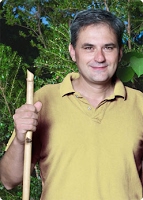 The week at Retraction Watch featured more fallout from a citation-boosting episode, and a look at when animal research becomes unnecessary and cruel. Here’s what was happening elsewhere: Continue reading Weekend reads: How to speed up peer review; the whipsaw of science news headlines; data-sharing stance sparks resignation request
The week at Retraction Watch featured more fallout from a citation-boosting episode, and a look at when animal research becomes unnecessary and cruel. Here’s what was happening elsewhere: Continue reading Weekend reads: How to speed up peer review; the whipsaw of science news headlines; data-sharing stance sparks resignation request
Author: Ivan Oransky
Citation-boosting episode leads to editors’ resignations, university investigation

The fallout from an investigation into alleged citation-boosting at several journals that we first reported on two weeks ago has widened, leading to the resignation of the executive editor of one of the journals, and an investigation at a university in The Netherlands.
On February 13, the European Geosciences Union (EGU) announced that an editor at two of its journals had resigned following an investigation by the EGU and its publishing arm, Copernicus, into citation-boosting. They declined to name the editor in question. Last week, we reported that the editor in chief of a Wiley journal, Land Degradation & Development, has temporarily stepped down while the journal investigated similar concerns about why the journal’s impact factor had jumped dramatically recently.
Others — many cleared in the EGU’s investigation — have been swept up in the ongoing story. Here’s what has happened in the last two weeks: Continue reading Citation-boosting episode leads to editors’ resignations, university investigation
Stuck in limbo: What happens to papers flagged by journals as potentially problematic?

Expressions of concern, as regular Retraction Watch readers will know, are rare but important signals in the scientific record. Neither retractions nor corrections, they alert readers that there may be an issue with a paper, but that the full story is not yet clear. But what ultimately happens to papers flagged by these editorial notices? How often are they eventually retracted or corrected, and how often do expressions of concern linger indefinitely? Hilda Bastian and two colleagues from the U.S. National Library of Medicine, which runs PubMed, recently set out to try to answer those questions. We talked to her about the project by email.
Retraction Watch (RW): The National Library of Medicine recently decided to index expressions of concern, which it hadn’t before. Why the change? Continue reading Stuck in limbo: What happens to papers flagged by journals as potentially problematic?
Weekend reads: They committed misconduct, then earned $100 million in grants; collateral publishing damage
 The week at Retraction Watch featured a frank admission of error by a Nobel Prize winner, and a look at five “diseases” plaguing science. Here’s what was happening elsewhere: Continue reading Weekend reads: They committed misconduct, then earned $100 million in grants; collateral publishing damage
The week at Retraction Watch featured a frank admission of error by a Nobel Prize winner, and a look at five “diseases” plaguing science. Here’s what was happening elsewhere: Continue reading Weekend reads: They committed misconduct, then earned $100 million in grants; collateral publishing damage
Weekend reads: The upside of predatory publishers; why no one replicates; the pain of manuscript submission
 The week at Retraction Watch featured a retraction of a state senator’s paper, and an editor busted for citation boosting. Here’s what was happening elsewhere: Continue reading Weekend reads: The upside of predatory publishers; why no one replicates; the pain of manuscript submission
The week at Retraction Watch featured a retraction of a state senator’s paper, and an editor busted for citation boosting. Here’s what was happening elsewhere: Continue reading Weekend reads: The upside of predatory publishers; why no one replicates; the pain of manuscript submission
Editor resigns from two journals after “considerable” citation boosting attempts
 An editor at two European Geosciences Union journals has resigned following revelations that he or she engaged in citation manipulation — boosting citations to his or her own papers and associated journals.
An editor at two European Geosciences Union journals has resigned following revelations that he or she engaged in citation manipulation — boosting citations to his or her own papers and associated journals.
Here’s a letter announcing the news, signed by EGU publication committee chair Hubert Savenije, that ran in several EGU journals earlier this week: Continue reading Editor resigns from two journals after “considerable” citation boosting attempts
Weekend reads: Sugar paper tussle at a reunion; “Sex, lies, and video-taped experiments;” p-value harm?
 The week at Retraction Watch featured the retraction of a psychology paper because of manipulation by an unnamed graduate student, and a tale about the cost of being a whistleblower, even when you’re successful. Here’s what was happening elsewhere: Continue reading Weekend reads: Sugar paper tussle at a reunion; “Sex, lies, and video-taped experiments;” p-value harm?
The week at Retraction Watch featured the retraction of a psychology paper because of manipulation by an unnamed graduate student, and a tale about the cost of being a whistleblower, even when you’re successful. Here’s what was happening elsewhere: Continue reading Weekend reads: Sugar paper tussle at a reunion; “Sex, lies, and video-taped experiments;” p-value harm?
Weekend reads: Sabotage in the lab; a lab animal database disappears; PACE authors push back
 The week at Retraction Watch featured the launch of the greatest journal ever, and a story about the backlash against widely covered research on why men eat more. Here’s what was happening elsewhere: Continue reading Weekend reads: Sabotage in the lab; a lab animal database disappears; PACE authors push back
The week at Retraction Watch featured the launch of the greatest journal ever, and a story about the backlash against widely covered research on why men eat more. Here’s what was happening elsewhere: Continue reading Weekend reads: Sabotage in the lab; a lab animal database disappears; PACE authors push back
Welcome to the Journal of Alternative Facts. They’re the greatest! And winning!
 Ever since Kellyanne Conway, counselor to U.S. President Donald Trump, used the term “alternative facts” on Meet The Press earlier this month, the term — an awful euphemism for falsehoods, as many have pointed out — has become a meme. And like every new field, alternative facts needs its own journal. Enter the Twitter feed for the Journal of Alternative Facts, featuring such gems as Scientistonce, I.A. (2017), “We Have All the Best Climates, Really, They’re Great.”
Ever since Kellyanne Conway, counselor to U.S. President Donald Trump, used the term “alternative facts” on Meet The Press earlier this month, the term — an awful euphemism for falsehoods, as many have pointed out — has become a meme. And like every new field, alternative facts needs its own journal. Enter the Twitter feed for the Journal of Alternative Facts, featuring such gems as Scientistonce, I.A. (2017), “We Have All the Best Climates, Really, They’re Great.”
We spoke to the founding editor to find out more about how they became the greatest overnight: Continue reading Welcome to the Journal of Alternative Facts. They’re the greatest! And winning!
Weekend reads: Misbehaving medical academics; are phase I trials ethical?; the “sin” of mistakes
 The week at Retraction Watch featured revelations about what happens when researchers unwittingly use a tool without permission, and a look at why women peer review less often than men. Here’s what was happening elsewhere: Continue reading Weekend reads: Misbehaving medical academics; are phase I trials ethical?; the “sin” of mistakes
The week at Retraction Watch featured revelations about what happens when researchers unwittingly use a tool without permission, and a look at why women peer review less often than men. Here’s what was happening elsewhere: Continue reading Weekend reads: Misbehaving medical academics; are phase I trials ethical?; the “sin” of mistakes